Interview: Bizarre Creations' Gareth Wilson on Blur
With the multiplayer Beta for Blur ending next week and the game itself releasing at the end of the month, we put Adam Hartley to task on forcing information out of lead designer Gareth Wilson and getting some cool gameplay details for you.
Bizarre Creations' Blur has been in development for a little over two years now, and focuses on full damage modeling, loads of special effects, and 50 licensed cars.
The game also includes five different power ups: Barge, Mines, Nitro, Shunt, and Shock, that you collect throughout each course, allowing you to blast other cars out of the way. It includes a single-player campaign as well as competitive and team-based multiplayer races with up to 20 players online, or on a single console via 4 player split-screen.
The game mixes Mario Kart-style power-ups with the racing action of Bizarre's Project Gotham, which leader designer Gareth Wilson said is good assessment.
So just a bit of background, before we start getting into it. How long has Blur been in development now?
Gareth Wilson: We started it when we were finishing PGR4 for Microsoft in 2007. We got bought out by Activision around that time. And we were finishing off some DLC for PGR4 for Microsoft, which we were contractually obliged to do. So just over two years ago. It all blurs into one, to be honest!
So how has being owned by Activision changed the culture of development at Bizarre?
Gareth Wilson: Not at all. I’d love to dish you some juicy gossip, but it really has not been that different at all. If anything, Activision has left us a little bit more to our own devices. Basically, they acquired Bizarre because they wanted some extra expertise in the racing field which was one area where they didn’t have any experience. They literally said to us: “We want you to make a broadly appealing racing game. We don’t have any plans. That’s why we’ve acquired you. You go for your life and come up with something that is appropriate.”
They operate this thing called the independent studio model at Activision, where they basically just leave you to it. As long as you are making decent games, then they don’t really interfere too much.
So what have they brought to the party?
Gareth Wilson: Well they are the biggest and best publisher on the planet in terms of selling videogames! So their expertise in PR and marketing has been outstanding. The PR event that we had for Blur a couple of months ago was just awesome, publicizing the multiplayer beta really well. So they have this very focused product marketing approach. Whereas Microsoft – still a completely awesome company to work for – is a technology company, Activision is an entertainment product company. Which is a big difference.
So it’s kind of different to the situation when you were an independent studio and Microsoft was the publisher?
Gareth Wilson: It’s not that different to be honest. It certainly wasn’t as different as I was expecting, because they operate that independent studio model – and we very much feel like we are an independent studio, even though we are owned by them.
The good thing, from our perspective, is when the game is finished we don’t have to go through all of that stress and worry of trying to find another publisher to work with, or renew a contract with a company or whatever. We know Activision wants to make racing games for the foreseeable future and we are kind of secure in our funding. Whereas as an independent studio you are always looking to your next project, so you know that you have something to come on-stream when your next game finishes. We don’t have to worry about that anymore. Which is great!
I remember Peter Molyneux telling me exactly the same thing when Lionhead was bought out by Microsoft.
Gareth Wilson: Well it is true. It is pretty stressful, to run a studio and have hundreds of people relying on their jobs to pay their mortgages and that. You can’t just make a prototype of a game and then take it to a publisher and say, “isn’t this game awesome?” You need to have five or ten million in the bank to actually go and create a videogame these days.
But what about stuff like Microsoft’s XNA and that? There’s a lot of talk about that ‘bedroom coding scene’ being resurrected by that type of thing.
Gareth Wilson: Yeah, it is happening, definitely. But it is a difference in attitude. We are geared towards making AAA racing games and AAA videogames. But the XNA stuff is happening. And broader than that, if you look at stuff like Flash-based games, Facebook-based games, the explosion of games on the iPhone – all that stuff is very much on the increase, but if you want to make a forty or fifty dollar videogame for a console, then that is still going to cost you millions and millions of pounds. There is really no way around that.
So to talk a bit more about Blur. The general consensus so far seems to be that it is a Mario Kart-style power-up focused game crossed with what you guys are good at – a Project Gotham style racer.
Gareth Wilson: Yeah, it’s a pretty fair comment really. I mean, we’ve got power-ups and it’s a racing game! But beyond that, when we set out to develop this we didn’t go out to create a grown-up version of Mario Kart. That was probably furthest from our minds when we started looking at the concept itself. What we wanted to do was just to bring the fun back to racing games, really. To make a game where there is constant battling, constant chaos, constant overtaking, constant jostling for position. And when we were working out how to achieve that in a modern racing game, putting a load more cars on the track was an obvious one. So we said we wanted twenty cars on the track, which is way more than our other competitors.
And then we wanted a mechanic that allowed you to move race positions in the game very quickly. And we tried a few things out and we found that the most interesting and exciting option was to use power-ups. So we kind of stumbled across it. We wanted you to be able to move positions quickly, and power-ups just became the best way to facilitate that.
So what non-Bizarre games are played most by the guys in the studio?
Gareth Wilson: Wow. Lots and lots of action-based games. Left 4 Dead is huge in the office at the minute. Wolfenstein: Enemy Territory, remember that? That gets played heavily. We do play a lot of racing games as well, but what we’ve found on this project is that we have been playing a lot of our own game at lunchtimes. Which is when you know you are onto a winner, when you have people working 12-hour days, six days a week and at lunchtime they still want to play their own game. It’s normally the last thing you want to do!
So yeah, we did a lot of multiplayer testing, internally – and we’ve really sort of drove the way the game works from all of those internal playtests, intensively testing out how power-ups work and all of that sort of stuff.
Going back a few years to when you were working with Sega. What ever happened with The Club? What was the fallout from that? Any plans to make further versions of that?
Gareth Wilson: Sega owns the rights to The Club, so we won’t be able to make another version of it. But as a game, we were really pleased with it, from a design perspective, because fundamentally we were trying to make a race-and-retry kudos-based shooter where you had high-scores and you had to repeatedly try to better your score as you ran around each level, with each level being kind of like a track. So basically like Gotham does shooting, which was the high level goal of it.
Sales-wise, it did okay. It’s not become the biggest-selling game of all time, or anything, but it still has a cult following. There is a Facebook group that still gets together every week to play the game. It wasn’t as successful as we would have liked it to have been, but at the time there were loads of massive games coming out around the same time, so it just got a bit lost in the release schedule.
It’s a shame, it really was a cracking game.
Gareth Wilson: Yeah, I really enjoyed the online side of it. Did you play the online much?
Oh no. I was rubbish at it.
Gareth Wilson: [Laugh] There was a great online mode called hunter-hunted where one of you was being hunted and all the others were hunters. And you had some very cool extra weapons and stuff. But you know, it was a tough one to market, because at the time everyone was into World War 2-based shooters and realistic-based shooters and this one was a bit left-field.
So talking about platforms – Blur is coming out on Xbox 360, PS3 and PC. No plans for handheld versions?
Gareth Wilson: Not right now. But maybe in the future. And to be honest, handheld is not something that we would do anyway. It is something that we would get someone else to do. Just license out the rights to the game. We’re not really set up for handheld development here.
Music seems to be a really vital component to all of your racing games. How important is that in this game and who have your worked with on Blur?
Gareth Wilson: [Asks PR guy: “has that been announced?” PR guy says: “No, not yet.”] Well we have been working with a band but we are not allowed to say yet! But of course we’ll make that announcement before launch. But it is interesting that you talk about music, because on PGR2 we had that really cool radio station thing, where if you were in Russia you would hear Russian radio announcers and bands playing while you were driving around Moscow. Which was cool.
Then in PGR4 we tried to go for a broader, more diverse selection of music. So we had a mix of different stuff - house music, acid jazz, indie stuff and rock stuff – but we found that people either loved your music or they hated it. Reviewers were even marking the game down because it featured a particular song that they didn’t like!
So for Blur we have gone for a completely composed soundtrack which has come from this band. So it is a uniquely composed soundtrack for the game, which we use to let you know when you are in first place, or at a particular event and so on. So certain events will have a specially-crafted music track.
Is it Blur?
Gareth Wilson: [Laughs] No. The reason we called the game that – and we had so many iterations of different stuff when we were trying to come up with a name – and we came down to about four or five favorites. And this one came back as the most popular. And we thought, from a UK-perspective, immediately of Blur the band, which we initially thought was a bit strange. But in the US it really sort of resonated with the overall style of the game, the neon-based power-ups, the speed, the carnage and all that sort of stuff. So the guys in marketing really thought the name conveyed all of that action in the game. And then, as luck would have it, Blur announced they were officially reforming. Which was brilliant!
Talking about the environments in the game – which are sort of loosely-based on areas of LA, London and various other cities. How did you go about creating those? Did you visit the areas that the tracks are based on?
Gareth Wilson: Yes, we went out to all of those areas and took reference shots, as we’ve done for normal racing games in the past. But what we made sure of on Blur, is that we weren’t as slavish to the real world as we were in Gotham. So if we were building a track based on Tokyo, say, and a corner was particularly tight and it wasn’t really suitable for twenty cars then we would just make it wider and move the street furniture to make the game feel better. With Blur we just want to give you a feeling about being in a place. We’re not that bothered about it being photo-realistic, so you can drive around and say “oh look, there’s my flat!” which is what you could do in PGR. Blur is more about the essence of the place itself. And also, we went for a much broader list of locations and environments in this game, so you have beach races, desert races, we have you driving around the Hollywood hills, with a massive Hollywood sign that you can smash into and stuff like that.
This was because we wanted people to have a real choice about which car they were picking – so if you go to an off-road track you should choose an off-road car because it will perform better, if you are on a street track you should pick a street car and so on. It also adds more strategy into the game, when the player decides to keep which vehicles they want.
So more generally, talking about this tendency towards ultra high-realism in the games industry, do you think this is perhaps taking away from what is really important? Which is gameplay. And fun.
Gareth Wilson: Absolutely. And that was the key driver for Blur, really. PGR3 was an absolute joy to work on – because whenever you work on new tech, the first thing you want to do is to make the most visually stunning videogame that you’ve ever done. So you go, “wow, look, we’ve put 140,000 polygons into a car and we’ve got a physics engine that we couldn’t have even dreamt of a few years ago.”
But then once you get this far into the console cycle, then everybody has got a sim. Everybody has got a Forza or a Gran Turismo or Gotham or a whatever. So trying to convince people to buy yet another sim is just difficult, really. And generally I think you are right – it is very natural for us as developers to try to recreate reality with our new toys. But at this stage of the console cycle I think it’s important to focus on fun and new experiences. And different types of gameplay. Which is really where Blur has come from.
Looking at the future of console tech. Is Bizarre working with any 3D tech or Project Natal or PlayStation Move?
Gareth Wilson: We have seen pretty much all of that stuff. And it is all awesome. But I can’t really talk much more about it, beyond saying that we have got it all and we’ve had people to come and see us and we have all sorts of interesting ideas about how all that sort of stuff could work. But nothing concrete yet. We’ve only just finished Blur. I’m going on holiday for a couple of weeks! But it’s all good stuff and as developers we love mucking around with new stuff.
Natal looks great, from what we’ve seen of it. And the Move stuff. But it’s still difficult to see how you can apply all of that to a racing game, because with a racing game you need to have precision in the controls. So you would probably want to create a very different type of racing game to work with that kind of control tech.
Well I’m just really keen to see Geometry Wars 3D working on Natal or Move.
Gareth Wilson: [Laughs with no further comment]
Back to Blur, one aspect of the game that is interesting is that you have parodied various popular social networks – with things like ‘Racebook’ and ‘InnerTube’.
Gareth Wilson: Yeah, this is something which – when the game was delayed last year and we had a bit of a re-set – we realized, to be straight with you, that we just hadn’t had enough time to come up with enough good new ideas… what with the PGR4 stuff dragging out and other things. 18 or 20 months just wasn’t long enough to make a new IP.
So when we had that re-set this idea of putting social networking into the game… well, technology just caught up with us really. And towards the end of the game’s development we were talking with all the social networking vendors, really, who wanted us to put Twitter and all of that sort of stuff in there. So now it’s much more about you being able to send challenges and progress updates and how well you are doing in the game through social networks to your real friends – because sending challenges and racing against your real friends is just more fun that doing the same thing with ‘AI friends’.
There are a few bespoke cars in the game designed by Bizarre – can you tell us more about those?
Gareth Wilson: Well there are only a couple of those bespoke ones based on 1950’s car culture and the like. But generally, with the car selection in general, because this is a more aggressive battling game we didn’t want ‘pretty’ cars – so Ferraris, for example, probably wouldn’t be appropriate for this game. Plus we also had to convince the manufacturers that it was okay to blow their cars up into little bits. Which took a lot of work.
I mean, we did consider just not using real cars in the game, but we quickly decided that we had to have real cars in there, otherwise people just thing it is a ‘toy’ or a kid’s game. Just by having those real cars in there, the game instantly has that AAA layer of quality. But it is not a car porn game, so to speak. The gameplay is the star, not the cars.
Forza and Gran Turismo are just car encyclopaedias. They serve a great purpose. They are for petrol-heads. But I think a lot of people are just not that interested in the cars. They are more interested in what they can do with the cars, the action and all that sort of stuff. Which is why we think that Blur is a broader game that is going to appeal to everybody.
We’ve done tons of work on the physics in this game to make the car feel like it is a real car. But a car that is easy to drive. The design goal was to make you feel like you were the best racing driver on the planet. So the cars break very heavily, way more than they do in reality. Just so you can feel like some kind of Hollywood film star driving around in a movie – that’s the kind of feeling we are aiming for.
What about post-release plans? Any DLC plans?
Gareth Wilson: Yeah, definitely, we’ll definitely be releasing some DLC stuff. One of the cool techie things that we have in this game is that we have a content server that you connect to when you boot up the game. So we can change playlists and game modes and add and remove stuff without actually doing an official DLC type downloadable pack over PSN or Xbox Live.
So we can give the community what it wants – adding things to the game on the fly at any time we want. And we can rebalance the game at any time. So we almost have this World of Warcraft-style ability to tune the game once it’s been launched. There is also a whole custom race section of the game where we give the players all of the controls that we have to the player.


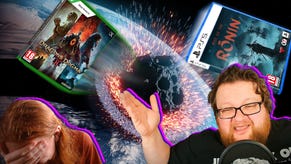
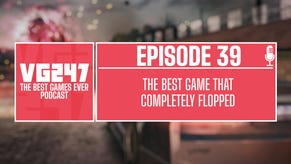

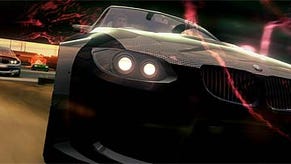

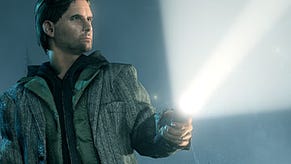
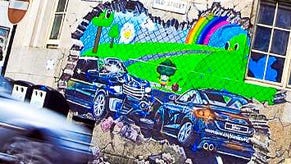
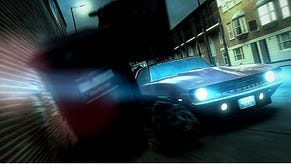
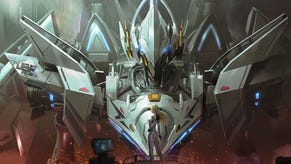
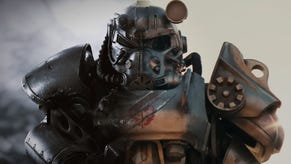
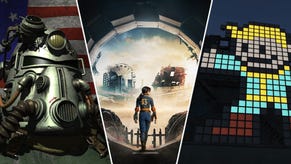
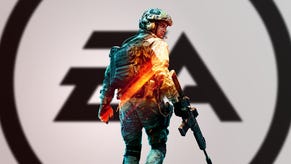

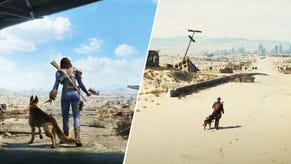
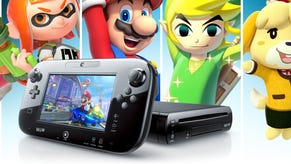
.jpg?width=291&height=164&fit=crop&quality=80&format=jpg&auto=webp)